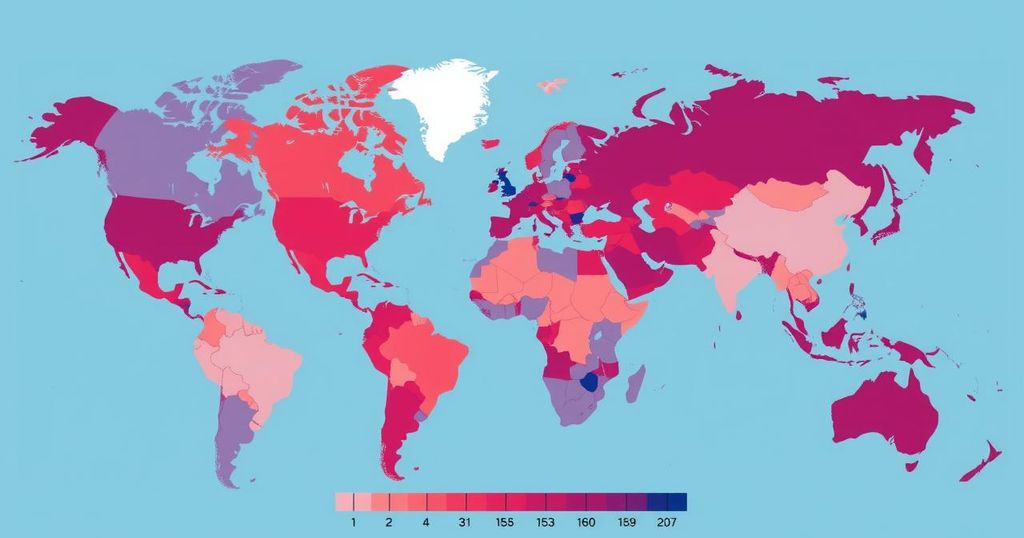Global Elections 2024: A Historic Democratic Participation Amid Economic Concerns
In 2024, over 60 countries held elections, with nearly half the world’s population participating. Voter behavior indicated a focus on immediate economic concerns rather than long-term issues such as climate change. Incumbents faced significant losses, notably in the US with Trump’s resurgence and in various democracies worldwide. Putin’s electoral tactics also revealed the dark side of democratic processes in Russia. Ultimately, 2024’s voting behavior underscores a global trend where economic fears overshadow collective interests, impacting future governance worldwide.
In 2024, a historic number of nations participated in elections, with over 60 countries casting votes for their leaders, representing nearly half of the global population. While this showcased a remarkable advancement in democratic engagement, the outcomes revealed that voters largely prioritized immediate, self-serving interests over collective well-being. Economic concerns dominated electoral decisions in industrialized countries like the United Kingdom, where Keir Starmer’s Labour Party achieved a significant victory amid ongoing economic challenges.
Despite the potential threat of climate change, it failed to resonate in voters’ choices this year. United States President Joe Biden discovered that although he managed to reduce inflation, overall economic pain led voters to support Donald Trump, despite his controversial track record. This year also witnessed democratic evolution in diverse regions, ranging from Africa to Asia, exemplifying a robust embrace of electoral rights, even in areas that long restricted voting rights.
Incumbents faced losses almost universally; Modi’s BJP in India suffered a decrease in vote share, and in South Africa, the ANC lost its majority for the first time. The most notable electoral event was Donald Trump’s return to favor in the United States, which may shape the global political landscape. Meanwhile, in France, President Macron, prompted by the rise of populist sentiments in the EU, maneuvered to secure his government but encountered diminishing support due to dissatisfaction with economic conditions.
Putin’s exploitation of electoral processes to reinforce his grip on power was glaring, with an 87% victory largely attributed to systemic repression and control of opposition. The implications of these results signal significant challenges for democracies, particularly with Trump and Putin positioned to influence global affairs together amid ongoing geopolitical turmoil in Ukraine.
Overall, the elections of 2024 illuminate a complex global landscape where voters exhibit a preference for familiar populist leaders, often at the expense of long-term solutions to pressing issues like climate change and economic stability. The year has highlighted the vast impact one nation’s electoral decisions can have on others, a critical reminder of democracy’s intricate web on the world stage.
The year 2024 marked a pivotal moment for democracy globally, as numerous nations held elections, signifying a collective step towards political participation for a significant portion of the world’s population. However, the results of these elections displayed a consistent trend of voters prioritizing personal and immediate concerns over wider, collective interests such as climate change and economic sustainability. This pattern was evident in multiple regions, where entrenched leaders faced challenges as public dissatisfaction rose, showcasing the complex interplay between electoral choices and socioeconomic conditions.
In conclusion, the electoral events of 2024 demonstrated both the promise and challenges of modern democracy. While a significant portion of the global population engaged in the voting process, the outcomes revealed a prevailing tendency to prioritize immediate economic issues over long-term societal benefits. The implications of these elections extend far beyond national borders, as global leaders face the repercussions of their constituents’ desires, indicating a dynamic, albeit precarious, landscape for the future of democratic governance.
Original Source: www.cnn.com




Post Comment